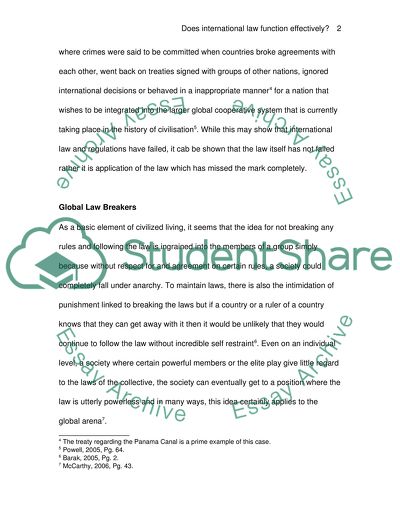Cite this document
(“Does international law function effectively Essay”, n.d.)
Does international law function effectively Essay. Retrieved from https://studentshare.org/miscellaneous/1537236-does-international-law-function-effectively
Does international law function effectively Essay. Retrieved from https://studentshare.org/miscellaneous/1537236-does-international-law-function-effectively
(Does International Law Function Effectively Essay)
Does International Law Function Effectively Essay. https://studentshare.org/miscellaneous/1537236-does-international-law-function-effectively.
Does International Law Function Effectively Essay. https://studentshare.org/miscellaneous/1537236-does-international-law-function-effectively.
“Does International Law Function Effectively Essay”, n.d. https://studentshare.org/miscellaneous/1537236-does-international-law-function-effectively.


